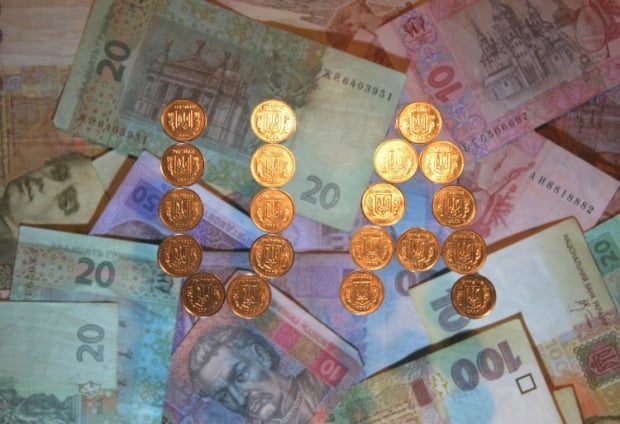
Ukrainian banks on reset
Ukrainian banks incurred record losses last year. While promising to bring as many problems to the bankers, the year of 2016 should also signal the healing of the system. Are the banks and the state regulator ready to tackle the challenges they are facing?
In the near future, the National Bank of Ukraine (NBU) is expected to release its annual report. Most likely, the bankers have set another anti-record, as the total loss of the country’s operating financial institutions over 11 months of 2015, excluding the insolvent ones, amounted to UAH 57.3 billion. In addition, the banks have moved to international accounting standards from December 1, having probably increased expenditure on creation of reserves. Considering the insolvent banks, which the regulator has been trying to ignore in its official statistics, this figure may actually double.
Summing up the year, NBU Governor Valeryia Gontareva called the completion of the main stage of purification of the banking system as one of the key achievements of the state regulator. She also announced the stabilization of the currency market and a halt to an unbridled printing of cash money to cover the budget deficit. According to the NBU, these measures, as well as the assistance from Ukraine’s key creditor, the International Monetary Fund (IMF), the country’s international reserves have risen 77% since the year start, to $13.3 billion. At the same time, the central bank managed to maintain a flexible exchange rate regime, required by the IMF. Switching to this flexible rate in 2014 was really painful, as it was accompanied by a threefold devaluation of the hryvnia.
Among the plans of the regulator for the current year is the transition to inflation targeting, whereby the rising prices will no longer bother the businesses and the population, while the hryvnia will return the lost trust. The head of the NBU considers the forecast for the hryvnia exchange rate set in the 2016 state budget at UAH 24.1 to the dollar as realistic. However, she warns of the risk of further devaluation due to lower world prices of main Ukrainian exports, the U.S. Fed policy of strengthening the dollar and the devaluation of the currencies of Ukraine’s trade partners. Through the banking supervisor, the NBU intends to "reset" the banking system in 2016, in order to reach "sustainable development" by the year end.
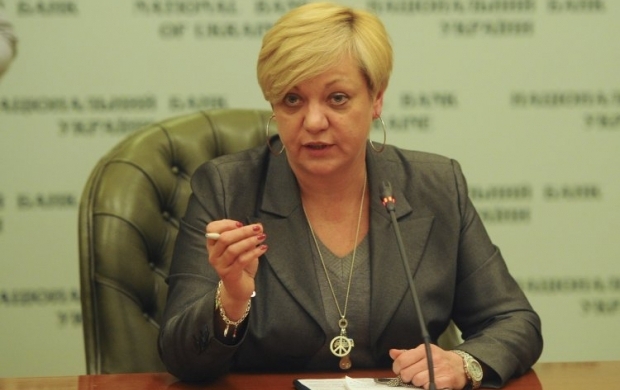
Meanwhile, the Ukrainian bankers have no unified position on whether the NBU’s course is actualy right. So far, the financiers have spoken of the newest positive trends with caution.
Expectations of bankers
The Ukrainian Credit-Banking Union association noted the growth of bad debts of the solvent banks over 11 months of 2015 by 1.5 times, up to 21% of the issued loans. In addition, the association drew attention to the decline in confidence on the part of investors, since the share of the citizens in the liabilities of Ukrainian banks has decreased from 40% in early 2014 to 32% in late 2015. These factors negate all the efforts to restore the basic function of the banking system as a creditor of the real economy. Therefore, the experts name top priority for 2016 a return of depositors’ confidence, undermined by "purging" of the banking system, which resulted in more than 60 financial institutions have been withdrawn from the market through the Individual Deposit Guarantee Fund. "The amount of the guaranteed payments to depositors of these banks was over UAH 60 billion over two years.”
This opinion is shared by the Independent Association of Ukrainian Banks. Executive Director of the NABU Olena Korobkova believes that the purging of the banking system made it more transparent, especially in terms of the actual structure of the property. At the same time, it brought massive distrust on the part of the public and potential investors. This problem will have to be solved for years. However, despite the outflow of deposits, the banking system still enjoys excess liquidity, but it is in no hurry to resume lending because of the low level of the creditors’ rights protection. "While the years of 2014 and 2015 were spent performing an audit of the state and viability of the Ukrainian banks, 2016 will lay a solid foundation for the resumption of their active work," Korobkova said.
Today’s bankers also speak of lost confidence. "I wish the popular attitude to the banks change, [so that they were perceived]as an engine of structural reforms for stabilization, and to the bankers – as the bearers of know-how, able to lead our country out of the global economic crisis, uncertainty, and turbulence in the financial sector," said the Chairman of the Board of Khreschatyk Bank, Dmytro Hrydzhuk. He emphasized that it is not just about banks, but also about the restoration of confidence at the state level, including the power structures. After going through purification, the banking system has changed, revealing painful its weakest links, but it also got a powerful impetus to the development. Among the key changes, the banker names the updated approaches to market regulation, increased competition, and changed lifestyles of customers, who chose to switch from consumer behavior to the saving trends.
Foreign banks are also cautious in their forecasts. Chairman of the Board of UkrSibbank (BNP Paribas Group) Philip Dumel believes that the coming year will be no easier than the previous one. "The banking system has strengthened its position, increased the general level of liquidity, and some were able to show good results. However, the economic situation in Ukraine still remains tense. So we do not expect that 2016 will be easier than the previous year. The banking system will continue to reform and recover, and this is always a complicated process," he said.
Senior adviser at Alfa-Bank (Ukraine) Roman Shpek shared his recipe of return to the path of growth in the banking sector. The expert believes that the country has already passed the most critical point, and 2016 will be different. "But we have to demand more from the authorities, the coalition in parliament, the government, the leadership of the NBU. They need to be faster and more radical in implementing reforms," stressed the banker. Shpek urges politicians and officials to let go of populism and focus on maintaining macroeconomic stabilization, besides recovering the banking system. This includes regulation of the budget deficit and support for the state power company, Naftogaz of Ukraine. "This macroeconomic stability will lay grounds for further sustainable growth. And it will be a signal and to our citizens, market participants, and investors that the country is changing. Then it will be possible to achieve the required 5-7% rate of economic growth," Shpek said.
Citing the examples of the countries of Central and Eastern Europe, which show an annual growth of 3-4%, the banker stressed that they had previously created a healthy macroeconomic environment. The banker also noted that the NBU also has to boost its professionalism and independence, becoming more predictable. "We cannot make the lives of our citizens better and easier at once. We can create conditions to let them work and earn money," said the expert.
While the bankers are the “interested party,” their assessment is in no way ultimate truth. What do the foreign investors and lenders say? The fate of Ukraine’s banking system and the economy depends on their mood, as well.
International assessment
The public was a bit stirred late January with the news that the Ukrainian banks were allegedly called the world’s worst at the World Economic Forum in Davos (Switzerland). In fact, as explained by the NBU, it was about the Global Competitiveness Index (GCI) released back on September, 2015. Ukraine took the 79th place in the GCI among 140 countries.
"The banking system is assigned the lowest score when the experts state that the banks may require additional capitalization. The NBU absolutely agrees with this formula. For more than 20 years, nobody has ever performed realistic assessment of the state of the banking system. We got it in a terrible state, and it had to be purged," Deputy head of the NBU, Kateryna Rozhkova. She assured that thanks to the capital increase of the banks carried out following stress testing, Ukraine will now take a much higher place in relation to this indicator.
Numerous meetings of the Ukrainian delegation with international partners in Davos indicating anything but fear of investors and creditors.
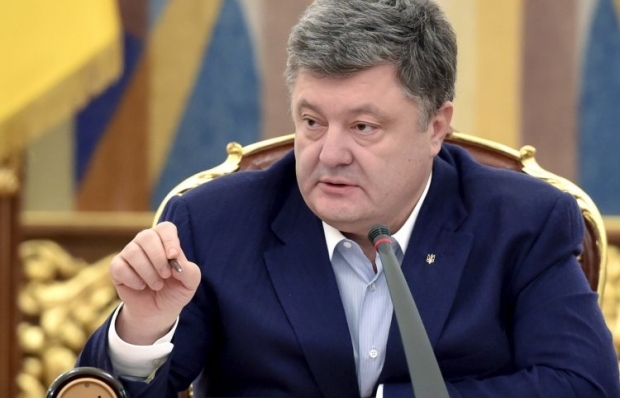
For example, following a meeting with IMF Managing Director Christine Lagarde, President of Ukraine Petro Poroshenko said that the country expects the Fund’s financial assistance program to continue, waiting for another $7 billion. Among the most important reforms, supported by the IMF, Poroshenko named the reform of the banking system.
Finance Minister Natalie Jaresko met in Davos with U.S. Deputy Treasury Secretary Nathan Sheets, who reiterated Washington’s continued support for Ukrainian reforms and announced the next steps required for Ukraine to get another, third consecutive, credit guarantee worth $1 billion.
The European Investment Bank has pledged to contribute to Ukraine’s economic recovery, the European Bank for Reconstruction and Development has showed interest in the new projects in the energy sector and agreed to enter into the capital of Ukrainian state-owned banks, while the Swiss government has vowed to disburse an additional $200 million to replenish Ukraine’s reserves.
It is noteworthy that in its latest report on the emerging markets, the EBRD has called Ukraine leader in a group of countries in a direction of reforming the financial sector. In particular, according to estimates of the Ukraine’s major investors, the country has made the most progress, having closed since 2014 more than 50 banks with opaque ownership structure, excessive amounts of connected lending and weak management. According to experts from the EBRD, many factors constraining the acceleration of reforms will remain in place in 2016, but the past year’s positive developments will serve as a good precondition for progress in the long run.
If the financial system is healing, then what was the reason for the delay of the next tranche of the IMF and the concomitant financing? Apparently, the international partners show solidarity with the Ukrainian bankers, pressing for the more active economic reforms.
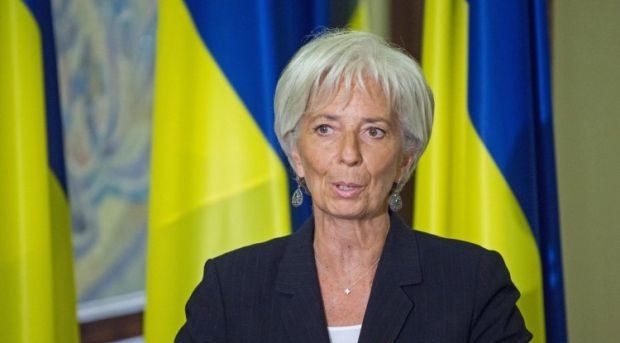
IMF Managing Director Christine Lagarde said she believes the discussions with President Poroshenko in Davos were “very positive,” expressing hope that they would bring the sides closer to the Memorandum, which is now drafted by both teams. To be continued, as the saying goes.
At the start
The past year has demonstrated rightfulness of the strategy chosen by the NBU of healing the banking sector. Successes were welcomed by international partners, who showed willingness to continue providing financial assistance. The bankers regretfully reminisce about the old times and ask the authorities to deal with other areas of economy, besides theirs. Meanwhile, bank customers continue to diversify their savings, using the widest range of mechanisms – from the banking system and foreign currency to the good old bedroom drawers.
The first month of the year has clearly shown that not all forecasts of the Ukrainian government are meant to come true. The national currency is persistently devaluing, getting closer to the last February’s historical minimum of UAH 30 to the dollar on some days in 2016. The NBU is trying not to repeat the mistakes of the last year, keeping a tight rein on the foreign exchange market, while continuing to use administrative levers and spending nearly $100 million a week on foreign currency auctions to support the hryvnia. Currency turbulence has revived the "black" market, facilitated by the ongoing payments worth billions through the Deposit Guarantee Fund. The situation was further worsened with money flood in the market following the December budget payments.
Since the beginning of 2016, the Ministry of Finance resumed its tradition of attracting resources in the domestic market through the sale of government bonds, which would actually be not so bad, had it been only about the national currency. But the ministry has also vacuum-cleaned the market, sweeping half a billion dollars a 7.67% annual rate (twice as expensive as the IMF loans). This, of course, will fall on the taxpayers’ shoulders.
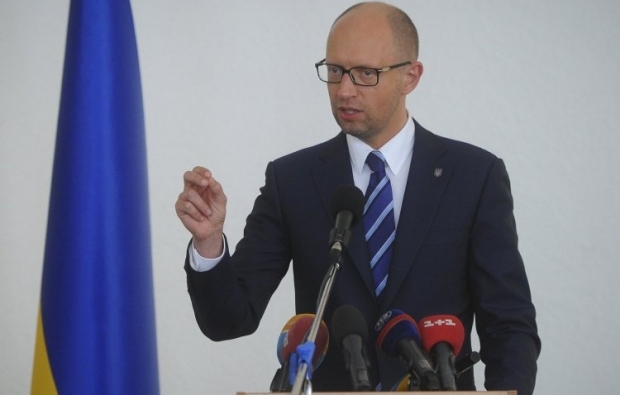
Understanding the causes of unrest in the foreign exchange market, Prime Minister Arseniy Yatsenyuk pledged to investigate into the matter and convene the Financial Stability Board. It’s like a déjà vu...
Of course, the problems of the banking system, accumulated over the past 20 years, cannot be solved immediately, and the coming year will see the trends of the previous one continue. The NBU will be cleaning the banking market, but it will mainly focus on small and medium banks as was promised earlier by the regulator’s chief. Most likely, the market will see another 20 or so financial institutions go, and the banking system will further shrink to a level required by the World Bank, according to the country’s actual needs. According to forecasts of the bankers, the assets of the banking system will not be growing yet, as the lending is not expected to increase until the end of the year, while in the framework of the restructuring legislation, some foreign currency loans of the citizens and businesses may be written off. More banks may change their owners. As early as in the first days of the new year, it was reported on the acquisition of UniCredit Group’s subsidiary bank in Ukraine by a holding group which has “Russian roots” of Alfa-Bank. Acquisition at the bottom of the market is always a good deal, so this agreement may indicate the start of big sales in the banking sector. Perhaps, the long-awaited changes in other sectors of the Ukrainian economy will also come because the banking system is just the tip of the iceberg.
Olha Hordienko (UNIAN)

